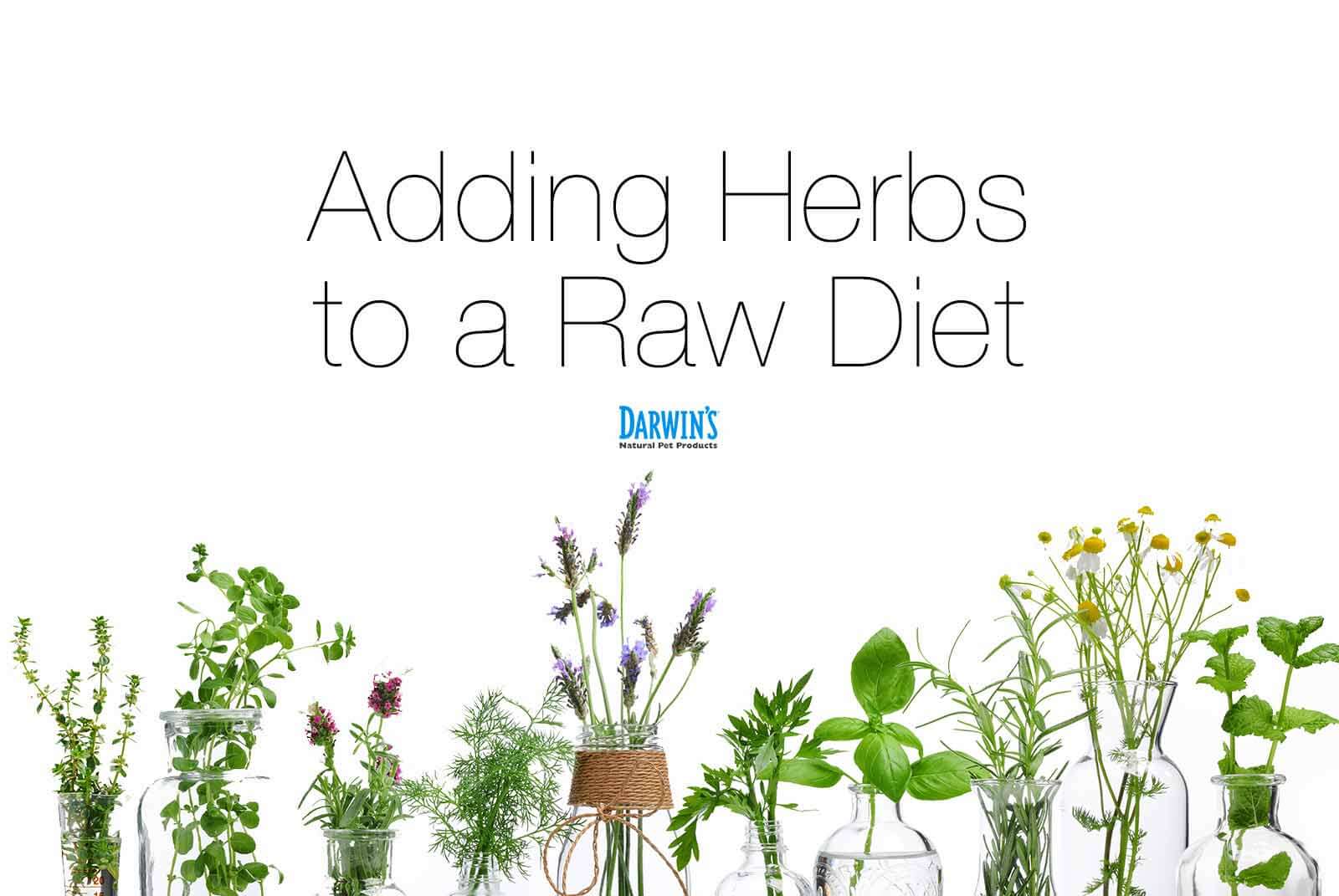Herbs and Raw Fed Dogs
7/26/17

Only when the body is healthy – do herbs have the greatest healing potential
Do raw food diets compliment the use of holistic herbs for animals?
From a holistic standpoint and according to expert Gregory Tilford in Herbs for Pets, “the holistic herbalist looks beyond the symptoms of disease to identify and correct their underlying causes. We find a continual need for complete nutrition because a body must have the fuel and tools it needs to build, maintain and repair itself.”
That being said, herbs essentially can help support and maintain a state of health and well-being for all animals and especially if the animal has the essential nutrition building blocks or the body is getting “complete nutrition”. So a raw food diet can only aid in the efficacy of herbs. Some might say that a raw diet gives the body all the fuel necessary to ensure the healing powers of herbs reach their optimal potential.
“I have found that patients who are good eaters typically accept the addition of herbs into their food. For some animals this means fresh cooked or raw or freeze-dried raw food toppers is required to entice them to eat vs. kibble or even some canned food,” explains Dr. Jester, DVM, Certified Veterinary Acupuncturist and Herbalist based in Portland, Oregon.
What about adding herbs to home based diets?
You can make an argument that a raw food-based diet (home based diets too) is more complete and balanced and that herbal medicines will have a greater impact if given to an animal “that has an adequate store of energy and building materials with which the body can work,” adds Tilford.
“If for example a patient is on a raw food diet because of allergies and has responded favorably then herbs are a nice addition to balancing the body, in this case herbs alone wouldn’t be sufficient to address allergies if the underlying issue isn’t addressed,” says Dr. Jester.
Why you should add herbs to your dog’s raw diet?
Herbs are known to stimulate, regulate or adjust natural body functions back into healthy harmony with the rest of the body. And in some cases can address issues like anxiety in animals or even allergies. Many herbs ARE food and the benefits are endless!
Unfortunately, we are living in a time when many dogs are re-homed or given to shelters due to behavior problems. Some dogs are extremely sensitive to their environment and react fearful when they are around other dogs. Holistic vets can be found throughout the U.S. and provide a holistic consultation to determine what to do and what herbal preparations can be made to help a dog well before they’re abandoned at a shelter.
If your animal has issues with reactivity or has environmental sensitivities you should schedule an appointment with a Holistic Veterinarian as they can recommend alternatives to conventional medicines.
What herbs can you use for anxiety?
Skullcap and Passion Flower are often used as alternatives to sedative drugs. Based on experience, sometimes it takes a village and often times it takes a combination of herbs to help with anxiety in animals.
Regarding our dog Sherman’s holistic approach, we’re taking an approach to his diet to lessen inflammation in his body in hopes that it helps him stay mentally more balanced and his herbs (Passion Flower) and Canine Adrenal Support are used to round-out the support for his body.
The primary medicinal activities for these specific herbs are:
- Passion Flower: sedative, pain reliever
- Adrenal Support:Help the adrenal glands respond normally to stress and metabolic demands. Support the glands’ ability to rebuild and regenerate
The product we use with our dog, Shermie, and a whole food/glandular supplement, not an herb. This is also given to us from Dr. Jester.
Indications for Use:
- Sudden stressful event or ongoing stress (internal or external)
- Signs of fatigue, reduced stamina, glucose intolerance, inflammatory response, and inadequate immune system functioning
- Clinical signs associated with adrenal stress
- Skull Cap: sedative, anticonvulsant (one of the most powerful herbal sedatives)
Herbs and supplements can also be used to support the GI tract when transitioning to a raw food diet.
So, There Is A Connection Between Herbs and Diets
And raw diets can complement various supplements.
“Without balanced nutrition, the use of herbal medicines in the holistic care of animals is a waste of time,” explains Tilford.
Let’s follow this advice!
Disclaimer: I am not a Veterinarian. As mentioned in this post, please seek guidance from a holistic vet to make sure there are no contraindications for a particular herb with an individual animal, as well as the potential for interactions with conventional medication.
Resources:
- http://www.drjester.com/
- Herbs for Pets Principles and Practices of Herbalism
- https://www.whole-dog-journal.com/issues/9_7/features/Canine_Adrenal_Glands_15824-1.html
- https://www.whole-dog-journal.com/issues/19_1/features/Using-Herbs-for-Dogs_21373-1.html#story-paywall

I live with three hounds in the Pacific Northwest – two Doxies and a Beagle/Basset Hound mix.
As a Certified Veterinary Technician, I use my knowledge to inform stories on health and wellness topics. I’m not practicing but continuing my education through workshops is a high priority. Readers can expect product reviews, updates on my senior dog and how living with a reactive dog changed my life.



